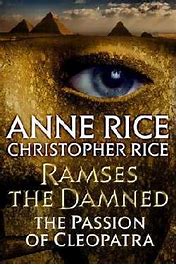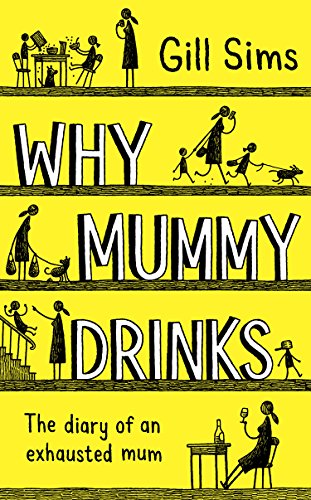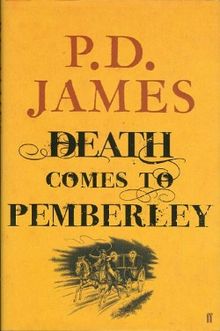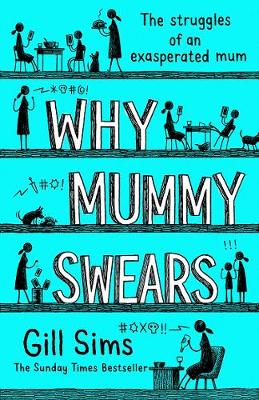
Having loved Anne Rice’s vampire series when I was in my late teens, I was very excited to be offered a copy of her new novel, ‘The Mummy’.
When it arrived through the post, I was startled to see that the book was actually co-authored by Anne Rice and her son, Christopher Rice. Having now referred to the initial email offering me the book, I note that the subject was, ‘The New Novel from Bestselling Author Anne Rice‘, and the body of the email referred only to, ‘this long-awaited new novel in the Ramses series’. Had I opened up the attached press release I would obviously have spotted the bonus author immediately, but I was far too excited to do that! When the book arrived I have to admit that I was irritated by the extra author and this led me to ignore it for nearly a year before my curiosity was piqued. Would writing as part of a team substantially change Anne Rice’s style? Would I still enjoy supernatural tales of various immortals leading luxurious but lonely lives? It was time to find out.
What’s it about?
See above! The longer version is as follows and will reveal PLOT SPOILERS FOR ANNE RICE’S ‘THE MUMMY’:
Rameses the Damned has awoken from a centuries long sleep in Elizabethan England and swiftly picked up a newly immortal fiancé, Julie. Julie’s ex-fiancée, Alex, is planning to throw them a grand engagement party (which seems very, very odd, but perhaps no odder than immortal life!) Rameses has also, in a moment of madness, bestowed the elixir of life on the bones of his old lover, Cleopatra, thereby creating a fearsome revenant who has murdered several mortals and threatened to murder Julie.
While Rameses and Julie fret about the plans of Rameses ex-lover, the newly awoken queen plots her revenge against the cad who woke her without her permission and the wench who plans to marry him. But Cleopatra has other, more pressing concerns: an American author, writer of tales set in ancient Egypt and dreamer of vivid dreams, appears to be stealing the ancient Queen’s memories. What is Cleopatra now? Is she Cleopatra at all?
Finally, a truly ancient Queen by the name of Bektaten is preparing to make herself known to the younger immortals. Can she foil a wicked plot to force the elixir into dangerous hands?
What’s it like?
Crammed with characters, stuffed with suspicion, and featuring a truly Edwardian focus on Empire and reverence for royalty.
There are so many characters that when Bektaten made her second appearance I had to find and reread her first one to understand who she was. Ditto her ancient chum, Saqnos. This isn’t a problem, but it does make this a slow read rather than something you rush headlong through.
Anne Rice’s typically detailed descriptions and her embrace of her characters’ sexuality is clearly present, (one sex scene in particular startled me by beginning apropos of nothing at all!) but the often sensuous nature of her writing seems less in evidence here, perhaps because Christopher wrote the first and final draft.
The prevalence of masters, slaves, ancient queens and, of course, the Edwardian setting, all combine to give the story an old-fashioned air, which is perhaps necessary to allow readers to read contentedly about immortal beings and magical elixirs!
Final thoughts
I have never read ‘The Mummy’, though I have read many of Anne Rice’s other tales, and ‘Ramses the Damned’ does seem to function as a standalone novel, especially as a lack of foreknowledge initially introduces more tension into some relationships / storylines (what exactly happened to Cleopatra, for instance), but it does make it difficult to comprehend Julie and Ramses relationship. She is very vanilla, very bland, apart from wearing men’s clothes and a top hat (?!?), which NO ONE IN 1914 ENGLAND COMMENTS ON. This seems unlikely, even in a novel where characters can survive sustained immolation and, well, pretty much everything else earth and their enemies can throw at them. Basically, you can tell me about how immortals battle each other using secret potions and I’ll listen happily; imply that an aristocratic young woman is allowed to attend her engagement party in Edwardian England dressed as a man and I’m immediately ejected out of the fantasy.
On a different note, given that Ramses is one of the titular characters, he is a little absent in his own story. I assume he was more of a protagonist in ‘The Mummy’: here he mostly does what he’s told by Julie and Bektaten. I would have liked to read more about him and his history, but perhaps this would have overlapped too much with the narrative scope of ‘The Mummy’.
The Sibyl / Cleopatra storyline is more intriguing, though not completely resolved. I assume both Rices wanted to leave the door open for further possible sequels. Mission accomplished, but there’s enough sense of an ending to feel that this storyline is resolved. In fact, there are several mini endings as the book moves to a close. Just as the opening chapters built up slowly, the closing is really rather drawn out; fans of quick reads may be disappointed; fans of Anne Rice will enjoy being plunged once again into the frequently lonely world of her powerful immortals.


